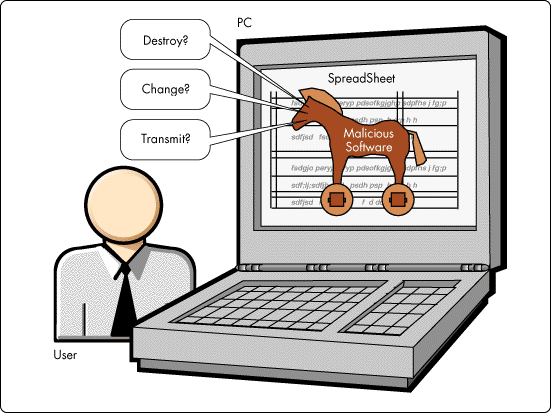
A Trojan Horse Virus is a common yet difficult to remove computer threat. This is a type of virus that attempts to make the user think that it is a beneficial application. A Trojan Horse virus works by hiding within a set of seemingly useful software programs. Once executed or installed in the system, this type of virus will start infecting other files in the computer. A Trojan Horse Virus is also usually capable of stealing important information from the user's computer. It will then send this information to Internet servers designated by the developer of the virus. The developer will then be able to gain a level of control over the computer through this Trojan virus. While these things take place, the user will notice that the infected computer has become very slow or unexpected windows pop up without any activity from the user. Later on, this will result to a computer crash. A Trojan Horse virus can spread in a number of ways. The most common means of infection is through email attachments. The developer of the virus usually uses various spamming techniques in order to distribute the virus to unsuspecting users. These emails contain attachments. Once the user opens the attachment, the Trojan Horse Virus immediately infects the system and performs the tasks mentioned above. Another method used by malware developers to spread their Trojan Horse viruses is via chat software such as Yahoo Messenger and Skype. Another method used by this virus in order to infect other machines is through sending copies of itself to the people in the address book of a user whose computer has already been infected by the virus. The best way to prevent a Trojan Horse Virus from entering and infecting your computer is to never open email attachments or files that have been sent by unknown senders. However, not all files we can receive are guaranteed to be virus-free. With this, a good way of protecting your PC against malicious programs such as this harmful application is to install and update an antivirus program.

No comments:
Post a Comment